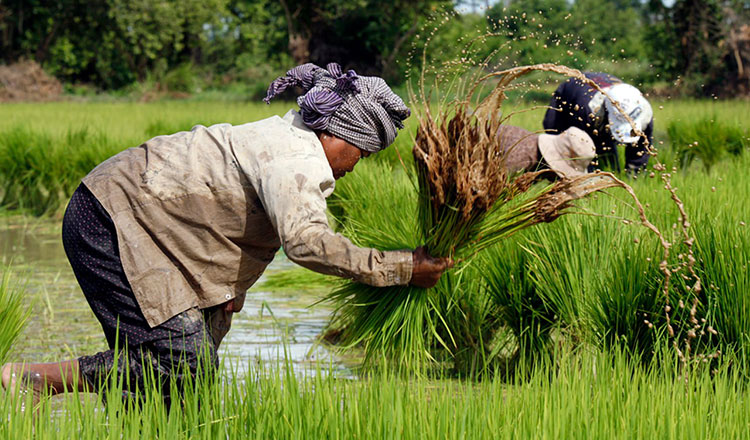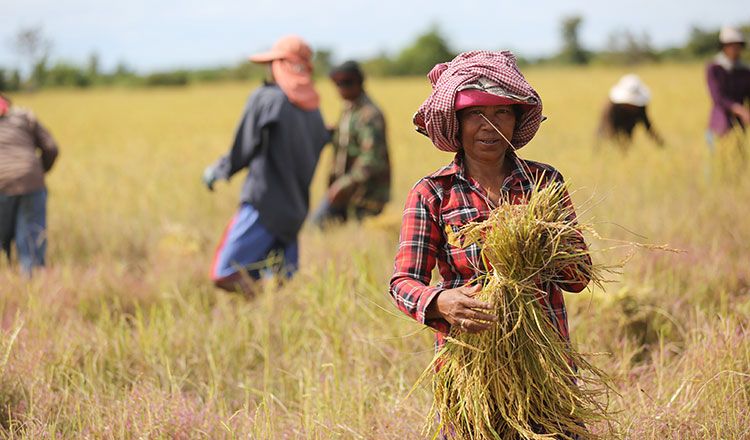Tags
IRRI project to cut methane emissions from rice paddies
Terry Friel / Khmer Times

The International Rice Research Institute (IRRI), backed by the US government, has launched a new project to cut methane emissions from rice fields in Cambodia and other Southeast Asian nations.
The Methane Accelerator for Southeast Asia (MASEA) programme aims to combine measures to cut methane gas emissions with practical steps to help farmers, particularly smallholders, cope with climate change.
“MASEA also aims to integrate farmers into carbon markets by unlocking financial benefits through climate-smart practices and bridging the gap between practicing environmental sustainability with economic incentives,” IRRI said in announcing the programme.
“The project is committed to overcoming high monitoring costs and logistical challenges and transforming agricultural practices across the region.

“By understanding farmers’ perspectives on risk and reward, MASEA aims to design interventions that align environmental goals with the economic needs of rice farming.”
Like similar projects, the IRRI scheme would use carbon trading markets, where carbon credits are bought from farmers and sold to companies to reduce their greenhouse emissions. It would work with farmers cut their greenhouse footprint by adopting techniques such as Alternate Wetting and Drying and producing biochar.
Biochar is a charcoal-like product made by slow-burning rice husks. It helps restore soil quality, reduce methane and acts as a carbon sink.
The MASEA project is also backed by the US government aid agency, USAID and draws on its methane accelerator concept drawn up in 2022.
Rice paddies are a major source of methane, which is 28 times more toxic than carbon dioxide.
Globally, rice production accounts for almost 10 percent of all greenhouse emissions from agriculture.
Cambodia is the target of several international projects to reduce methane gas emissions from rice fields.
The Japan International Research Centre for Agricultural Sciences is working with the Royal University of Agriculture of Cambodia (RUA) and the Cambodian Institute of Technology.
And Japanese carbon broker Green Carbon Inc. is talking with the Kingdom’s top producer and exporter of organic rice, Amru Rice (Cambodia) Co. Ltd., about another project to help thousands of small farmers.
Cambodia faces increasing vulnerability to climate change, with projections indicating that the country’s average temperatures could increase by 1-2.6 degrees Celsius by 2050.
Climate change could cut the country’s GDP by 2.5 percent by 2030 and 9.8 percent by 2050, a recent study by the Ministry of Environment and the MEF warned.
The Kingdom is at the forefront of global efforts to tackle climate change. It has set an ambitious target of cutting greenhouse gas emissions by 42 percent from 2022 levels by 2030 and triple its spending to achieve that goal.
Published Date: November 26, 2024






